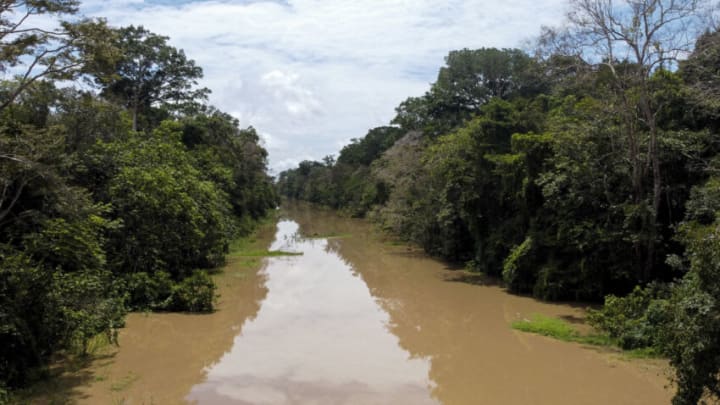Sounds kind of made up, doesn’t it? But the bush dog definitely exists. They are indeed part of the canine family and are wild dogs.
Today we’ll be looking at the breed a little closer.
What is a bush dog and how come you haven’t heard of it?
Bush dogs aren’t really known because not much has been documented about this breed until recently. They’ve been around for a long time. It was in 1839 that bush dog bones were unearthed by paleontologist, Peter Wilhelm Lund, and at the time, it was said that bush dogs were extinct, which of course wasn’t true at all, so their exact origin is a tad hard to track down. So “uncommon” is the word often used when describing this particular breed.
South America and in parts of Central America is where this canine dwells, and it’s longer body and round face make it unmistakable when trying to distinguish it from other breeds. Cute, fury, but at times ill-tempered, this wild dog is adorable to look at but maybe don’t try to feed it out of your hand when you come across one in the wild.
Bush dogs are indeed carnivores, according to Wikipedia, and they can actually hunt prey that is much larger than they are. They are great fighters and like MMA fighters—the smaller ones—that take on larger foe, bush dogs actually attack the legs of larger animals, chopping at the proverbial old oak tree until they vanquish their foes. Essentially they play the part of David to the Goliath larger prey and they play it well.
According to animalspot.net, the bush dog is also known in places as the Savannah Dog.
Physically, their faces actually resemble that of a bear. They look just like bear cubs only their bodies are longer and they have the tiniest of legs, making for an adorable pup indeed, but remember, a fearsome one as well.
Interestingly enough, according to the aforementioned source, their feet are webbed—which is great for hunting in the water, which they are expert at; they also dive into the water, which is of course different for canines, so no doggy paddling for these pups.
In fact so little is known about the breed, those in the know argue whether they are nocturnal or not. They hunt in the day and in packs apparently, as many sources suggest, but there are those that believe them to be nocturnal creatures. So, they too have mastered the art of burning the candle at both ends, eh?
Can they be domesticated? Well, I’ll leave that up to author and cavalier breeder, Rachel Neumeier. When asked the question on Quora, this is some of what she had to say:
"“Acquire several dozen to a hundred or so specimens. Select the most docile, easily tamed individuals and breed only those. Repeat for a bunch of generations. Presto, you have domesticated bush dogs…If you don’t have the facilities and time to invest in keeping a largish number of individuals, working with them, evaluating them according to consistent criteria of “tameness,” and breeding them, then no…Taming an individual does not domesticate it. That is just taming. Domestication means altering a population of the species so that it is physically and mentally different from its ancestors and the differences breed true.”"
In the end, there are indeed many breeds of wild dogs out there and this one here is just the tip of the iceberg.
We’ve already looked at many wild dogs and cats, and this is just another one. Dear readers…any wild dogs you know of that you’d like to learn even more about? Let us know.
